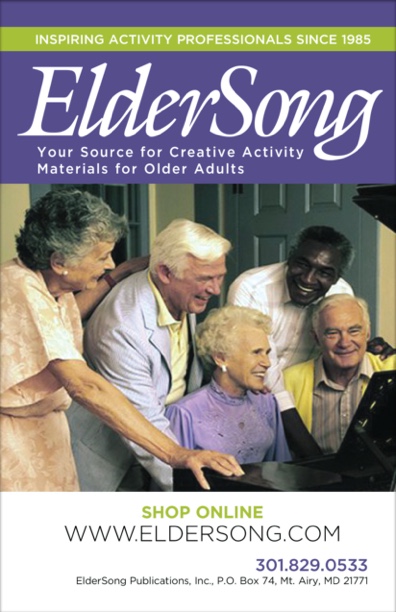Do you have memories of large family gatherings when all of the relatives came for a visit – grandparents, aunts, uncles, and cousins? The goal was simply to share a meal and enjoy each other’s company. Or, can you recall a time when you opened your home to a new family in your suburban neighborhood? You wanted to welcome its members with a nice meal and to help them feel at home in their new surroundings. Older adults probably have many such memories.
WHAT IS HOSPITALITY?
Ask your participants to share memories of the following situations:
- Preparing a 1930s luncheon or tea for the women’s bridge club
- Opening your home to travelers during the Great Depression as a “boarding house”
- Inviting your neighbors over for some 1940s war-time cake
- Offering a returning World War II veteran and his young bride a place to stay because of a housing shortage
- Hosting a 1950s-style teenage sleepover in your newly completed family “recreation” room. Sharing a barbecue on your backyard patio with your co-workers
- Providing overnight lodging and a meal for an evangelist holding a revival in town
- Cooking a meal for a shut-in
Did group members mention the words hospitality or entertaining? Webster’s defines hospitality as “the friendly reception and treatment of guests or strangers.” But what exactly is at the heart of hospitality? Ask your group the following questions:
- Can you think of a person who is particularly hospitable? What is he/she like?
- Describe ways you’ve offered hospitality or received it from someone.
- Did you grow up in a hospitable family?
- What does being hospitable mean? (Suggestions: opening your home and making your guests feel at ease; sharing resources to meet the needs of your guests; providing fellowship; offering acts of kindness; warmth and enthusiasm for people)
In many ways, hospitality is similar to entertaining. But is there a difference? Some people might say that hospitality focuses more on people-your guests-while entertaining focuses more on the great food, the beautiful table, or the spotless house. Ask your participants if they agree. Why is hospitality not practiced as much today as it used to be?
PRACTICING HOSPITALITY
Hospitality comes in many forms. Sharing an informal meal is one way of extending hospitality. Ask your participants to recall how they used good food to make guests feel at home. What lessons about entertaining did they learn from their parents or grandparents? Some old cookbooks might trigger memories. Look for favorites like the 1931 edition of The Joy of Cooking (or an updated version) or the 1950 classic Betty Crocker’s Picture Cookbook. To be hospitable means to be fond of guests. Your group can reminisce about what it means to be a gracious host/hostess. Share sections of Emily Post’s 1922 classic Etiquette (or an updated version) or the best-selling 1952 edition of Amy Vanderbilt’s Complete Book of Etiquette. Another possibility: Betty Crocker’s Guide to Easy Entertaining, published in 1959. Serve some tasty appetizers!
Gather your group and entertain your “guests” on your house piano. Singing with others builds bonds. Christmas songs are included as well. Sing some simple tunes with your group and enjoy the camaraderie. “I don’t sing very well” is not an excuse! Just sing-for the fun of it! Serve some “Hospitality Punch,” a favorite drink in the 1930s and 1940s. Add brewed tea to a fruit juice punch.
For a culminating activity, ask your group to compose an acrostic poem on the word HOSPITALITY (print the word vertically on a marker board and ask your group to define the word using the letters of the word). Example: S = Simplicity is a must!
BED AND BREAKFAST BRIEF
Another facet of hospitality is how to deal graciously with houseguests, whether overnight, weekend, or extended. Divide participants into two groups. Ask one group to compose a list of “Tips for Being a Good Houseguest” (e.g., bring a small gift for the hostess) and the other group to offer “Tips for Being a Gracious Host/Hostess” (e.g., be attuned to the special dietary needs of your guests, such as no sugar, no caffeine). Read the lists and encourage your group to share memories of houseguests – both good and bad!
Many people want to simulate a home-like atmosphere while traveling. Talk about the history of bed and breakfasts, in private homes or in bed-and-breakfast inns. Ask: Have you ever stayed in a B&B home or inn? Did you get a warm, comfortable bed, a gracious host, and a tasty meal in the morning? Describe the “personality” of your favorite B&B. Why do many people prefer bed and breakfasts to chain hotels and motel rooms? Serve your group some blueberry muffins and tea.
THOUGHT FOR THE MONTH
Bring a ray of light to your senior adults with a smile or hug, a kind deed, or a word of encouragement.
“Those who bring sunshine into the lives of others cannot keep it from themselves.” ~ Sir James M. Barrie
“HOSPITALITY” written by Sue Hansen. © 2005 ElderSong Publications, Inc. All rights reserved.
Reprint Policy: To reprint or republish all or portions of this entry, you must acquire written permission and agree to link back to the original source. Please contact us at [email protected] to obtain permission.


